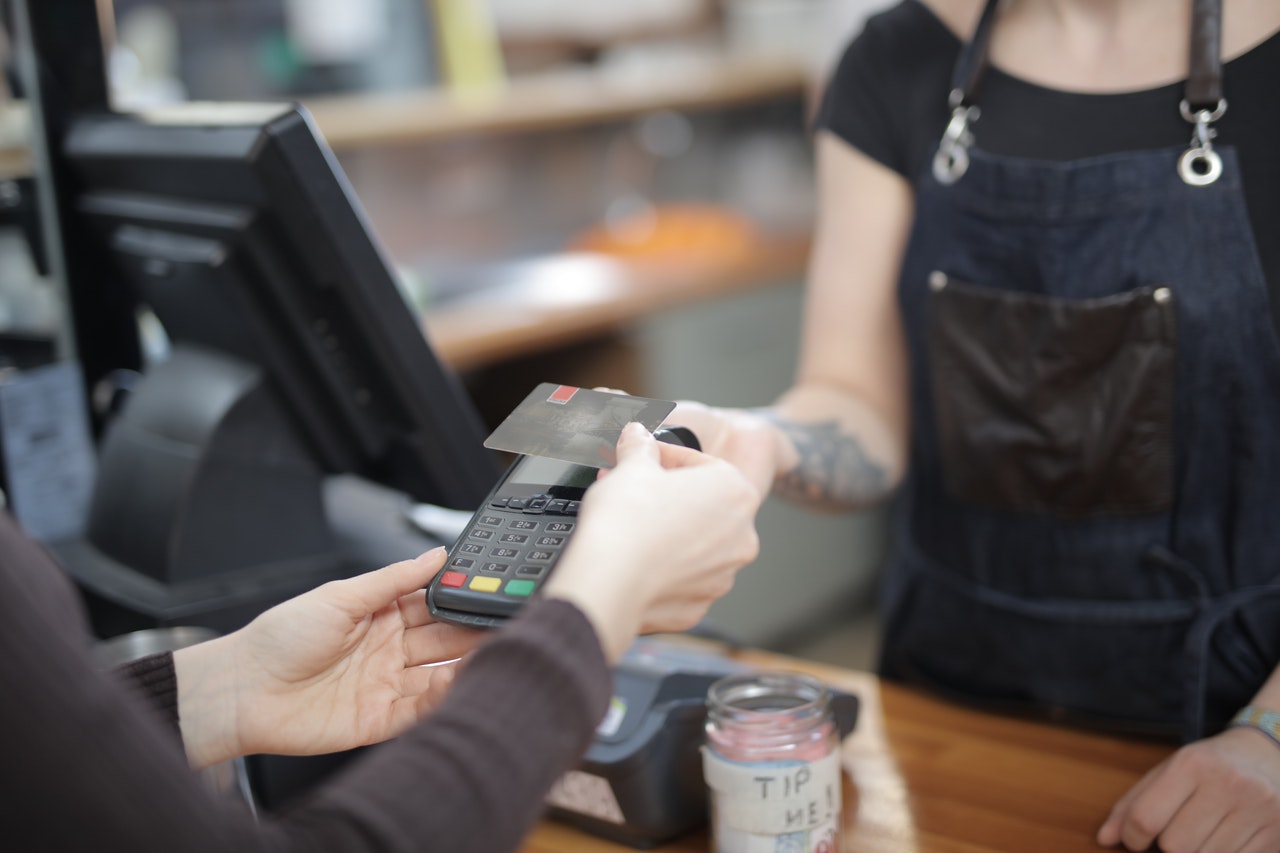Before we can really get a hold of our spending, we must first know where our money is going. I’ll be the first to admit that knowledge without action in this area in particular is worthless. We can have all the knowledge in the world about what we should be doing with our money. But if we don’t take action to implement our knowledge, years will go by without any meaningful investment in our future wealth. Here are the 3 steps I use to track our personal expenses and set ourselves up for a bright financial future.
3 Steps To Track Expenses
1 – Choose a System
To be honest, I’m a little bit old school in my method. I use a free accounting software to manually touch every single transaction I make out of my credit card. The plus is, I use the same software for my small business accounting. I haven’t used tons of different software, but I personally like Wave Accounting.
Wave Accounting
It’s free, it’s fairly easy to use, and it just works. I use this to track my expenses and for my business accounting. I will admit, that this one requires you to run your expenses as if they were a business expense, so it might be more confusing for someone not coming from a financial background. If that’s you, maybe the best place to start would be Mint.
Check out Wave here.
Mint
You can also use Mint by Intuit which is free. You just have to deal with their ads all over the place which gets annoying. It’s much more automated, but I find it kind of annoying to constantly have to go back to expenses that have been auto-categorized and switch them to the correct category. I personally love Mint for their dashboard which shows Net Worth, Cash, Credit Cards, and Investments balances.
Check out Mint here.
So, for what it’s worth, I use both! And a spreadsheet as well so I can look at each month in the past. But honestly the spreadsheet is probably overkill. I’d start with Mint then move to Wave if you’re wanting more control over your financial picture. But seriously, these tools are very helpful for tracking expenses as they take a lot of the leg work out of it.
2 – Establish a Routine
Every Friday, my wife and I have a meeting on both of our calendars to meet and discuss our current financial situation for the month. We look at the income, expenses, and asset values. What I noticed is, if I wait for the end of the month, it’s much more time consuming to go through all the transactions. Plus, it’s really hard to remember what some transactions were for if they were from 3 weeks ago. The weekly routine works for us, but this could be more or less frequent. Just as long as we actually do it! We used to do monthly, but it’s just not enough touch points to make meaningful changes. It’s a heck of a lot better than never doing it at all, but I think weekly is the sweet spot for most people needing to get their financial lives together.
3 – Be Patient
The only thing that will drop in your first few weeks of tracking your expenses is your jaw. At least, that was the case for me. I was absolutely shocked at how some months we could spend $1300 on groceries or $1,000 on eating out. But the truth is, momentum will start to build as we get better at knowing our weak areas where we tend to overspend and being more mindful as we spend in those areas. It’s important to give ourselves some time to understand our spending habits and start to make small behavior changes that result in big savings over the course of the months and years. There are almost endless ways we tend to waste money. So don’t be discouraged! My wife and I continue to be surprised at how many different fun and creative ways we find to save money. But most important of all is learning how to track expenses because that is where the knowledge to make positive change comes from.
The Financial Reward Of Tracking Expenses
The financial upside of starting to track our expenses is almost infinite. There is an amazing feeling when we actually know what our monthly spending is and can get that number in control. There are so many adjustments in our behavior that can be made to save more money too! I rarely give up things to save money because we really don’t have to very often. Making coffee at home, switching cell phone service, renting books from the library – there are endless ways we can still have our coffee and drink it too.
The decision to track our expenses really is the first step towards financial independence. It gives us control, knowledge, and the ability to plan for the future. We really can’t be in control of our financial future without knowledge of where our money is going. So this investment in time is 100% worth it. Plus, it starts to get fun and become a game. Just be careful because there is definitely a point where saving money can no longer be worth it. Life is more enjoyable when we have confidence about our financial picture.


Pingback: Weekly Spending Review - The Frugal Feline